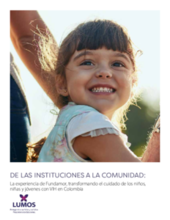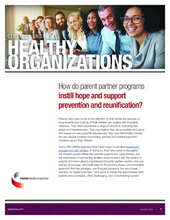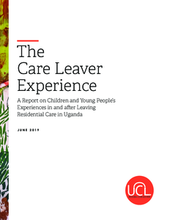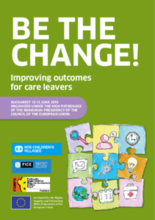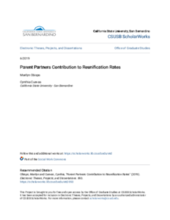Displaying 461 - 470 of 991
Este informe documenta el proceso de la organización Fundamor a cerrar su internado y, con el apoyo de Lumos, reubicar a los niños y niñas internos en nuevas modalidades de atención familiar.
This Casey Family Programs issue brief looks at the use of peer mentors (“parent partners”) who work with parents entering in and engaging with the child welfare system.
“Current Aftercare Practices” (CAP) is a documentation exercise designed to look at the support and services received by CLs from the objective lens of an ‘Aftercare Quality Index’(AQI), calculated using the scores within 8 domains. This report covers a total of 98 young adults from Rajasthan, comprising of 40 males and 58 females CLs, from both Government and NGO-run Child Care Institutions (CCIs) and 17 youth who, as children, availed the benefits under the Palanhar scheme of the Rajasthan Government.
In order to address the need for evidence-based research about the care leaver experience, a study was facilitated by the Uganda Care Leavers project - sponsored by Alternative Care Initiatives (ACI), a Ugandan NGO, and BULA, a U.S. 501(c)(3) non-profit organization - to conduct peer-led participatory workshops throughout the country. These care leavers, identified by local community leaders and networks, were invited to participate in workshops where they completed surveys about their experiences, the results of which are presented in this report. Survey results are the basis of this study’s recommendations and suggestions for future care reform.
This report from SOS Children's Villages describes the Leaving Care Project, a project that was set up to develop and implement a state-of-the-art training programme for care professionals who work directly with young people leaving care in order to equip them with the skills, knowledge and tools they need to work with young people in transition.
The following research study aimed to discover the relationships and contributions that parent partners have in the reunification process of parents and children within the child welfare system.
This report by War Child aims to bring global attention to the challenges related to the reintegration of children associated with armed forces and groups, and promote better policy, practice and funding in the future.
This mixed method study explores the postsecondary experiences of foster alumni in a large southwest urban area of the US.
This article uses a content analysis methodology to critically examine and compare the findings of six recent Australian child protection inquiries (five at state and territory level and one Commonwealth) in relation to their discrete sections on leaving care.
The current study used a quasi-experimental design and propensity score matching to examine the outcomes for children of families served by the Iowa Department of Human Services Parent Partner program, a peer support program to mentor parents who are currently involved in the US child welfare system.

